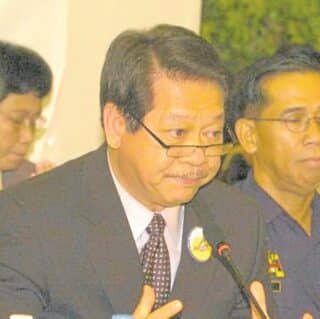State-run Land Bank of the Philippines (Landbank) will establish in September next year a so-called “OFW Bank,” an offshoot of its planned acquisition of Philippine Postal Savings Bank (Postbank).
Under the plan, Philippine Postal Corp. thrift unit Postbank would be converted into a Landbank subsidiary to be 30-percent owned by overseas Filipino workers (OFWs).
The Department of Finance noted that a bank dedicated to the needs of OFWs was one of the promises of President Duterte to Filipino migrant workers.
“The acquisition of the Postal Bank will be completed by the third quarter of 2017, after all required procedures are completed and approvals are secured. Landbank has sufficient resources to complete this transaction,” said Finance Secretary Carlos G. Dominguez III, who chairs the Landbank board.
Dominguez had put to a halt the merger of Landbank with state-run lender Development Bank of the Philippines, earlier set into motion by the Aquino administration under an executive order, as the Finance chief noted that the two lenders had different mandates they needed to serve.
According to Landbank president Alex Buenaventura, it would take them eight months to convert Postbank into OFW Bank.
“The OFW Bank will be a listed company with an authorized capital of P3 billion and a subscribed capital of P2 billion, of which P1 billion is paid-up by Landbank. Another P1 billion will be open for subscription to OFWs who can acquire them by buying shares in the bank,” Buenaventura said.
Before OFW Bank starts operations by Sept. 1, 2017, Landbank must get the go-ahead from the Bangko Sentral ng Pilipinas’ policymaking Monetary Board, the Governance Commission for Government-Owned and -Controlled Corporations, Philippine Competition Commission (PCC) as well as the Securities and Exchange Commission (SEC).
“Starting Jan. 2, the Landbank, with the involvement of the Commission on Audit and the BSP, will begin undertaking due diligence to start the process of converting [Postbank] into a Landbank subsidiary. The Landbank would also have to draw up a purchase agreement and amend its articles and bylaws to formalize its acquisition of [Postbank],” Buenaventura said.
As of end-September, Landbank was the country’s fourth-biggest bank in terms of assets with P1.29 trillion, BSP data showed.
Postbank, meanwhile, currently has 31 branches and microfinance banking offices nationwide, according to its website.
In a related development, Dominguez said that ahead of the establishment of the OFW Bank, Landbank would soon put up a representative office in Saudi Arabia to serve 800,000 OFWs.
“Landbank decided to open the Saudi unit in Riyadh because 40 percent of OFWs based in that country reside there,” Buenaventura said. “The Landbank unit will be opened near the Philippine labor office or near a place where OFWs usually converge and meet.”
The Riyadh unit would initially offer financial education and investment counseling services to OFWs, Buenaventura added.


